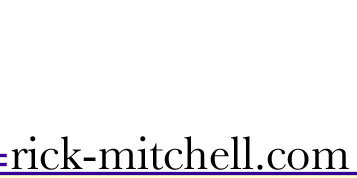Monsanto to Appeal French Court Decision
On Liability for Herbicide Poisoning of Farmer
By Rick Mitchell
PARIS--Monsanto plans to appeal a French court ruling that the company must “fully compensate” a farmer who the court said suffered neurological and respiratory problems as a result of inhaling fumes from the company's Lasso herbicide, a company official told Bloomberg BNA Feb. 14.
In what legal observers called a first in France, the Lyon First Instance Court issued an injunction Feb. 13 finding Monsanto responsible for what it called medical harm suffered by farmer Paul François as a result of exposure to Lasso fumes in 2004.
The court cited “causal links” between Lasso's chemical properties, Monsanto's failure to adequately inform customers of the product's dangers and how to protect themselves from it, and the medical harm suffered by François.
Monsanto must “fully compensate” the farmer for harm he suffered, the court said, and it appointed medical experts to assess the damages.
Observers said the decision opens the way for farmers to seek damages from Monsanto and other plant-health product manufacturers in similar cases.
However, Yann Fichet, institutional and industrial affairs director for Monsanto France, said the company will appeal the decision. “Our experts have determined that [the analysis] finding a causal link between the medical facts and Monsanto are flawed,” he said.
Authorized for 40 Years
According to the case, François breathed Lasso fumes when he opened the top of his sprayer equipment. He soon suffered from nausea and vomiting, which worsened into chronic headaches, stammering, memory loss, and muscular problems.
In 2008 the government declared him 50 percent disabled.
Fichet said the herbicide used for corn crops had been authorized for sale in France for 40 years, including at the time of François's alleged exposure. Lasso was removed from the French market in 2007.
The Monsanto official said Lasso complied with French safety requirements when it was authorized to be marketed in the country, and that the company has strong safety policies.
“Lasso was used safely and successfully by farmers around the world on millions of hectares of crops,” Fichet said.
The product included instructions with recommendations to wear mask, gloves, and coveralls during use, he said, suggesting that François might not have followed these instructions.
Obligation to Provide Information
French environmental law attorney Arnaud Gossement, in an analysis of the court decision on his website, cautioned that it is too early to draw definitive conclusions from the case because the court-appointed medical experts must issue a report before damages can be assessed, and Monsanto could still make numerous appeals.
However, “at this point in the jurisprudence, this judgment emphasizes that makers of plant-health products used in agriculture have an obligation to provide precise information to users,” Gossement said.
He said the court found that Monsanto's instructions failed to adequately inform users that Lasso contained a high concentration of the toxin monochlorobenzene, which French government health services had identified as a source of acute and chronic toxicity in humans, with neurological, lung, renal, and other effects.
Lasso instructions failed to inform users of the need to wear a respiratory protection device when applying the herbicide and while cleaning equipment afterward, according to the ruling text reproduced on Gossement's site.
“This judgment shows also that failure to provide this information can make the [responsible company] liable for total compensation for harm suffered by the victim,” Gossement said.
François Veillerette, spokesman for the nongovernmental organization Générations Futures, which focuses on poisoning and other cases involving pesticides, said that because of the Lyon court's decision, “Plant-health companies now know that they can no longer unload their responsibilities on public authorities or the product user, and that they will have to pay for that liability.”
(Feb. 29, 2012)

